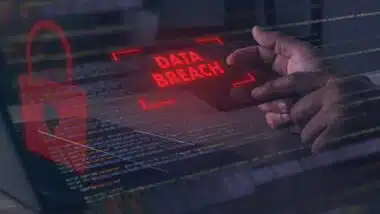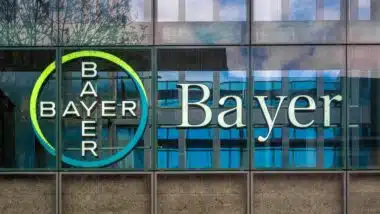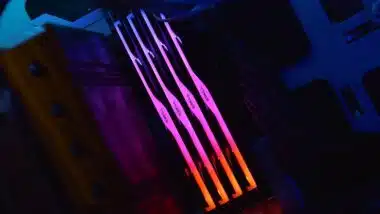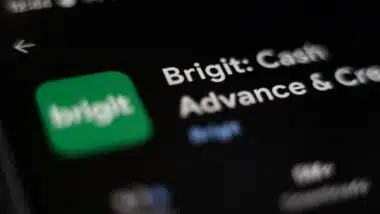 A new lawsuit says several major international banks are responsible for helping fund terrorist attacks that led to IED injuries in Iraq for dozens of servicemembers.
A new lawsuit says several major international banks are responsible for helping fund terrorist attacks that led to IED injuries in Iraq for dozens of servicemembers.
Roadside Bomb Lawsuit
The lawsuit names several foreign banks, including HSBC Bank, Barclays Bank, Royal Bank of Scotland, and Commerzbank, among others.
According to the lawsuit, “[e]ach of the Defendants also knew, or was deliberately indifferent to, the foreseeable (and inevitable) consequences of providing Iran, a State Sponsor of Terrorism, with access to hundreds of billions of dollars of concealed payments and the resulting funding of Iranian-controlled organizations and terror proxies that targeted American civilians and servicemen through acts of international terrorism in Iraq from 2004 to 2011.”
These roadside bombs have led to major IED injuries in Iraq, as well as many fatalities.
This lawsuit was filed by the family members left behind by U.S. military members who suffered from fatal IED injuries in Iraq. According to the lawsuit, Blake S. was killed in 2007 at the age of 25 by an EFP, leaving behind his parents, brothers, and sisters. Christopher N. was killed by an EFP in 2007 at the age of 22, leaving behind parents and siblings. Steven D. was killed by a grenade in Iraq in 2007 on the Fourth of July, leaving behind his widow, daughter, parents, and brother.
Finally, Josh R. was injured by an EFP attack in 2007. Though he survived the attack itself, he died due to his injuries later that day. He left behind his parents, his siblings, his widow, and his one-day-old child, whom he would never get to meet.
All of these family members were devastated when their loved ones were killed in Iraq more than a decade ago now. They filed this Anti-Terrorism Act lawsuit on Dec. 28, 2018 in an effort to hold the banks involved accountable for their actions.
IEDs and EFPs
IEDs and EFPs are types of roadside bombs used during the Iraq and Afghanistan wars, which have led to many injuries and deaths of U.S. servicemembers.
IEDs, or Improvised Explosive Devices, have been tied to 63 percent of coalition deaths in the Iraq war, and 66 percent of these deaths in Afghanistan. EFPs are Explosively Formed Penetrators, and while these are responsible for fewer deaths by comparison, they are considered far more lethal due to their power.
Explosively Formed Penetrators (EFPs) are responsible for a smaller percentage of deaths, but they were significantly more lethal for U.S. military members because of how powerful they are. In fact, EFP devices can pierce armor and fling 100 yards or more. The New York Times called EFPs the “most lethal weapon American forces faced in Iraq” because of this power.
The U.S. Department of Defense found that many of the IEDs and EFPs used in these wars, to devastating effect, were actually supplied by Iran—even though the U.S. had placed sanctions on Iran to prevent this very thing. However, a number of major foreign banks allegedly worked to circumvent these sanctions, some of which have since openly admitted to their actions. Banks that have come forward after being implicated include HSBC of UK, Commerzbank of Germany, and BNP Paribas of France.
Filing an IED Attack Lawsuit
If you or a loved one have suffered from IED injuries in Iraq, or if a loved one died in one of these attacks, you may be able to file a roadside bomb lawsuit and pursue compensation. Of course, filing a lawsuit cannot undo the pain and suffering caused by these horrific attacks, nor can they bring a loved one back to life, but they can at least help to alleviate some financial burden and holds the banks responsible accountable for their actions.
The IED Attacks Lawsuit is Case No. 1:18-cv-07439, in the U.S. District Court for the Eastern District of New York.
If you or a loved one was injured or killed by an IED or EFP while fighting in the Iraq or Afghanistan wars, legal recourse is available. Get help now by filling out the form on this page for a FREE case evaluation.
The attorneys who work with Top Class Actions will contact you if you qualify to let you know if an individual lawsuit or anti-terrorist class action lawsuit is best for you. (In general, anti-terrorist lawsuits are filed individually by each plaintiff and are not class actions.) After you fill out the form, the attorneys who work with Top Class Actions will contact you if you qualify to let you know if an individual lawsuit or class action lawsuit is best for you. Hurry — statutes of limitations may apply.
ATTORNEY ADVERTISING
Top Class Actions is a Proud Member of the American Bar Association
LEGAL INFORMATION IS NOT LEGAL ADVICE
Top Class Actions Legal Statement
©2008 – 2026 Top Class Actions® LLC
Various Trademarks held by their respective owners
This website is not intended for viewing or usage by European Union citizens.
Get Help – It’s Free
Join a Free Iranian IED, EFP Lawsuit Investigation
If you qualify, an attorney will contact you to discuss the details of your potential case at no charge to you.
PLEASE NOTE: If you want to participate in this investigation, it is imperative that you reply to the law firm if they call or email you. Failing to do so may result in you not getting signed up as a client or getting you dropped as a client.
Email any problems with this form to [email protected].
Oops! We could not locate your form.













One thought on IED Injuries in Iraq at Center of Recent Litigation